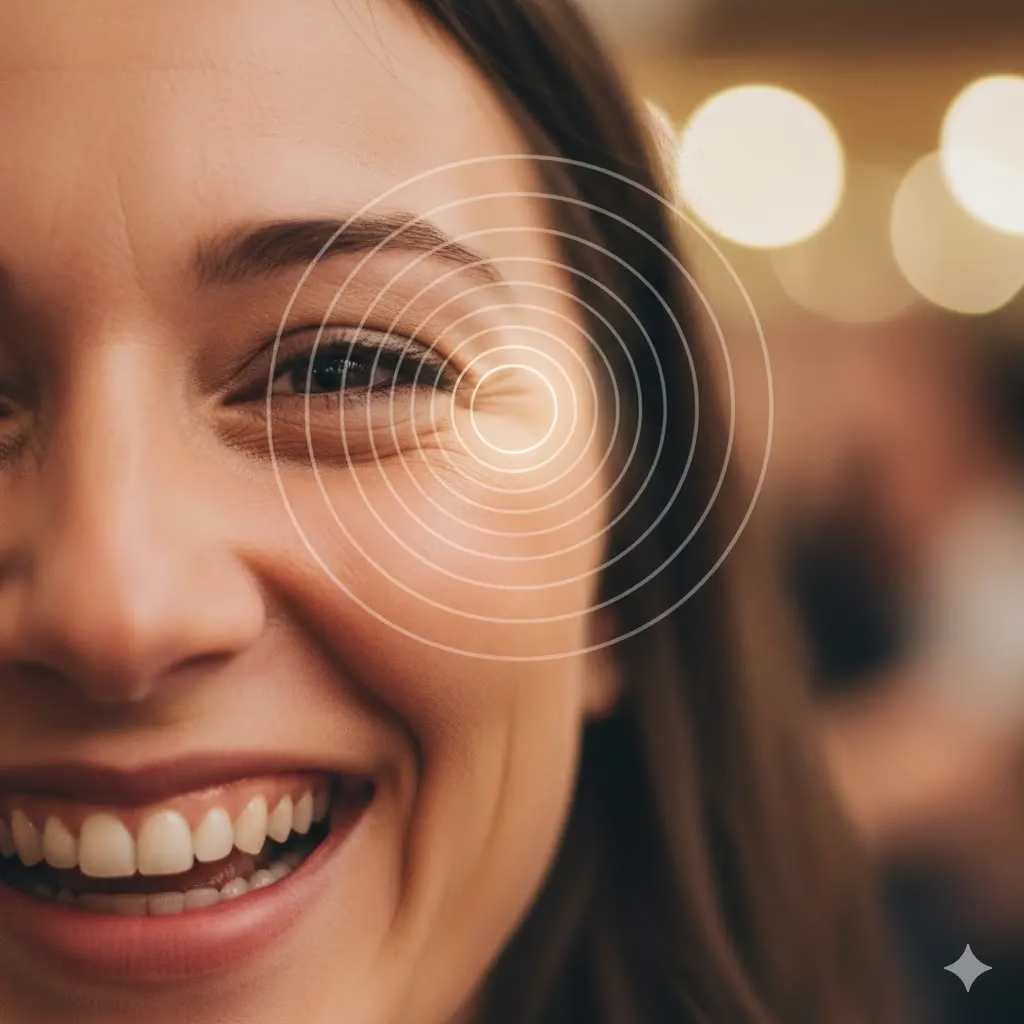
A firm believer in the power of a good laugh, the author found solace and strength in humor after navigating life’s ups and downs. This journey inspired the author to share the profound benefits of Laughter with a wider audience. When not writing, the author enjoys sharing jokes and spreading smiles wherever they go.
Introducing Laughter: The Universal Sound of Joy
Laughter is a sound all people understand. It crosses all language barriers, breaks down walls, and always means joy. Quick, catching, and really good for us, it is key to the human story, from a baby’s first little giggle to the loud laughs of old friends. It is more than just a sound we make when we are happy; this powerful tool benefits our physical and mental health. Laughter helps us connect socially, making it a core part of being human.
The world often feels full of stress, worry, and big problems. In this world, the simple act of laughing can feel like an amazing way to take care of yourself. But it is truly the “best sound”? Science, psychology, and countless personal stories say a clear yes. This article will look at the many great things laughter does for us. We will explore how it affects our bodies and minds. We will share easy ways to add more laughter to your daily routine. Finally, we will show why ‘It Is The Best Sound’ is not just a nice saying, but a deep truth.

The Science Behind the Smile: How Laughter Works Its Magic
Laughter is not just a quick feeling; it starts a complex chain reaction in your body. When you laugh, many good changes happen inside you, switching your state from bad to good.
The Body’s Quick Workout:
Think of it like a short, fun workout. It uses many different muscles. Your diaphragm muscle tightens, your chest muscles work, and even your stomach muscles get a light squeeze. This physical activity is the main reason you might feel nicely tired after a long, big laugh.
Beyond muscles, it greatly helps your heart and blood system. Your heart rate and blood pressure first go up, but then drop lower than normal, helping you relax. It brings in more oxygen, waking up your heart, lungs, and muscles. It also causes your body to release endorphins. These are natural “feel-good” chemicals that make you feel well and can even stop pain for a while.

Less Stress and a Stronger Immune System:
One of the most important benefits of laughter is its power to fight stress. Stress hormones like cortisol can harm your body over time. They weaken your immune system, cause swelling, and lead to many health issues. So this is a strong cure. It lowers these stress hormones. At the same time, it increases the number of immune cells and disease-fighting antibodies. This makes your body better at fighting off sickness. Laughter is a vital, often forgotten, part of a strong immune system.
Relief from Pain:
The release of endorphins that comes with laughter is not just about feeling happy; it is also about feeling less pain. These natural painkillers made by your body can work well to ease pain, raising your pain limit. It cannot cure long-term pain, but it can give short-term relief and make the pain easier to handle. It offers a needed break and a sense of hope.
The Mind’s Best Medicine: Mental and Emotional Benefits
The physical benefits are great, but the effects of laughter on our minds and feelings are just as deep. It helps us cope, improves our mood, and builds emotional strength.
Better Mood and Fighting Sadness:
It is nearly impossible to feel truly sad or angry while you are having a real laugh. As it instantly brightens your mood. It offers a mental break from bad thoughts and feelings. It helps you see things in a new way, making problems feel less scary and challenges seem easier to beat. For people dealing with sadness or worry, bringing more laughter into their lives can be a helpful plan. It gives moments of peace and a natural lift to their state of mind. Just the act of smiling, even if forced, can trick your brain into releasing good chemicals. Laughter makes this effect much stronger.

Increased Strength and Recovery:
Life will always have tough times. How we handle these hard moments often decides how happy we are overall. Laughter builds strength by helping us keep a hopeful view, even when things are bad. It lets us deal with negative feelings, gain a clearer view, and bounce back more quickly from bad events. When we can find humor in a hard spot, we feel more in control. We stop ourselves from being crushed by tough times.
Better Thinking and Problem Solving:
When you are relaxed and happy, your brain works much better. This helps clear out mental clutter. It reduces rigid thinking. It encourages a more open and flexible mindset. This can lead to greater creativity and improved skills for solving problems. When you face challenges with a lighter heart and a clearer head, new and smart solutions are more likely to appear.

The Social Glue: Laughter and Relationships
Aside from its personal benefits, laughter is key to our social lives. It is a powerful glue that makes relationships stronger, builds connection, and calms tension.
Building Bonds and Breaking Down Walls:
Laughter spreads easily. When you laugh with someone, a special connection forms. It signals shared understanding, care, and good feelings. This shared moment can build bridges between people from different places. It breaks down social walls. It creates a sense of belonging. Think about how fast strangers can connect over one truly funny event.
Better Talking and Solving Fights:
In any relationship, it can be a secret tool. It eases tension during arguments and offers a common ground when ideas are different. Crucially, it opens up communication. A good joke at the right time or a moment of shared humor can stop fights from escalating. This shift allows partners, friends, or coworkers to face issues with a mindset of working together. Ultimately, it reminds us not to take ourselves too seriously, even when things matter a lot.

Increased Appeal and Likeliness:
People naturally like those who are happy and can make others laugh. A sense of humor is often named as a highly wanted trait in friends and romantic partners. Laughter makes you seem more open. It creates a good feeling around you. It fosters a space where others feel safe and valued. Sharing laughter is a close act that shows trust and joy.
How To Do It: Finding More Laughter in Your Life
With all these benefits, the question is not if we should laugh more, but how. Our busy, often serious lives can make laughter feel like a luxury, not a need. But with real effort, we can create a life rich in humor and joy.
1. Go Out and Seek Humor:
Do not just wait for laughter to find you; go find it.
- Watch Comedies: Set aside time to watch stand-up comedy, funny movies, or TV shows. Make this a regular part of your free time.
- Read Funny Things: Look for funny writers or amusing stories online.
- Listen to Comedy Podcasts: There are many podcasts just for humor that you can listen to while traveling or doing chores.
2. Spend Time with People Who Make You Laugh:
Humor is catching. Be around friends, family, or coworkers who have a good sense of humor and who make you laugh. Their happy energy will rub off on you. Try to connect with those who lift you up and bring joy into your life.

3. Try Laughter Yoga:
Laughter yoga is a unique idea where people laugh without needing jokes or comedy. They start the laughter as a simple physical exercise in a group. They often use playful actions and eye contact. The idea is that your body does not know the difference between real and fake laughter. Both offer the same good benefits for your body and mind. It is a great way to let go of self-doubt and feel pure, honest joy. Look for classes or groups near you.
4. Find Humor in Daily Life:
Develop a playful view of the world. Look for the silly, the odd, or the slightly crazy things in your day. A small mistake can be a source of stress, or it can be a funny story to share. Choosing the second choice can quickly change your mood.
- Example: Spilling coffee on your shirt before a big meeting could feel terrible. Or, it could be a moment to laugh at your own clumsiness and share a relatable, funny story with a colleague.
5. Be Able to Laugh at Yourself:
Self-deprecating humor (when kind and respectful) is a strong tool. It shows humility, strength, and an ability to not be too serious about yourself. When you can laugh at your own mistakes or odd habits, you lessen the stress of needing to be perfect. You also become more relatable to others. It is a sign of emotional health and self-acceptance.
6. Start a “Laughter Journal”:
Keep a small notebook. Write down funny things that happen each day. Include jokes you hear or funny things you see. Re-reading this journal can be a fast, simple way to make yourself smile or chuckle whenever you need a lift.
7. Create a “Humor First Aid Kit”:
Gather a collection of things that always make you laugh. These could be funny videos, online jokes (memes), quotes, or even a silly hat. When you feel down, grab your kit for an instant mood boost.

8. Share Your Laughter:
This is meant to be shared. Tell funny stories, share jokes, and engage in light, fun conversation with others. When you give laughter, you often get it back many times over. This shared exchange makes the benefits stronger for everyone.
9. Practice Smiling:
While not true laughter, smiling is its close cousin. Even a forced smile can send signals to your brain that lift your mood. Practicing smiling can make it easier for real laughter to follow. Smile at strangers. Smile at yourself in the mirror. Watch the good change in how you feel.
10. Make Time for Play:
Do not let your adult life steal your sense of play. Do things that bring out your inner child. Play board games. Build something fun. Jump in puddles. Play with pets. Playfulness often leads to sudden bursts of joy and laughter.

The Great Power of Laughter in Action: Real-World Examples
To truly see how great laughter is, let’s look at some real examples of its power to change things:
- Hospital Clowns: Groups show how laughter can greatly help sick children and adults. By bringing joy and distraction, these clowns help patients deal with pain, fear, and the cold hospital setting. This often speeds up recovery and improves emotional strength. The laughter they cause acts as a powerful, helpful treatment.
- Laughter Clubs for Older People: Many groups have started laughter clubs, especially for older people. These clubs offer a social space and a dedicated time for shared laughter. This fights loneliness and improves overall mental and physical health. People who join often report more energy, better sleep, and a happier view of life.
- Workplace Wellness Plans: Smart companies are adding humor to their work wellness plans. Putting in “laughter breaks,” comedy classes, or just encouraging a lighter mood can lower employee stress. And boosts team spirit. It improves teamwork. It also increases creativity. All of this leads to higher output and more job happiness.
- Personal Stories of Strength: Countless people facing huge personal sadness or long-term sickness have found comfort and strength in humor. Using this to cope does not make their situation less serious. Instead, it gives them the power to go through it with more grace and a lighter heart. It is about finding light even when things are dark.

The Spreading Effect of Laughter
When you laugh, you are doing more than just something good for yourself. You are sending out good feelings into the world. Your laughter spreads. It can brighten the mood in a room. And bring a smile to a stranger’s face. It can inspire others to embrace joy. It creates a cycle where one person’s happiness sparks another’s. This leads to a happier and more connected community.
To sum up, ‘Laughter Is The Best Sound’ is more than just a nice thought; it is proof of a basic human experience that holds deep power. This natural cure costs nothing and has no bad side effects.
Furthermore, laughter gives many benefits for our physical health, mental well-being, and social connections. The world often asks us to be serious, but in this world, embracing laughter is an act of hope and a nod to life—a conscious choice to make joy happen. So, go ahead and let out a chuckle, a giggle, or a roaring guffaw! Your body, mind, and the people around you will thank you for it. Make this a top priority, and watch as your life becomes richer, healthier, and clearly happier.
FAQ
Q1: How much should I laugh to get the benefits?
A1: There is no set “dose” of laughter. But studies show that even just a few minutes of real laughter each day can help. The more, the better! Try to look for chances to laugh throughout your day.
Q2: Can fake laughter help as much as real laughter?
A2: Yes, it can! Research on laughter yoga suggests your body often does not know the difference between real and fake laughter. The simple physical action of laughing, even if you start by forcing it, can cause the release of endorphins. This leads to good body responses. Often, forced laughter can turn into real laughter.
Q3: Is laughter always right to use?
A3: Laughter is mostly positive. However, you must be careful of the situation and other people’s feelings. Laughter should never be at someone else’s expense. It should not be used to tease or hurt others. Its power is in its ability to connect and uplift, not to isolate or harm.
Q4: Can laughter help with pain that lasts a long time?
A4: Laughter can make your pain limit higher for a while. It does this by releasing endorphins. These are your body’s natural painkillers. It also takes your mind off the pain. While it is not a cure, it can be a valuable tool to help manage pain. It also improves your quality of life.
Q5: What if I do not feel like laughing?
A5: It is perfectly fine not to feel like laughing all the time. On bad days, just trying to smile, watching something mildly funny, or engaging in a gentle, playful activity can start to change your mood. Remember, even a little bit of humor can help. Sometimes, simply being around people who are laughing can start the good feeling in you.
References
- NIH – The Laughter Prescription: A Tool for Lifestyle Medicine
- ScienceDirect – Laughter-inducing therapies
- Laughteryoga – About Laughter Yoga
Recent Posts


